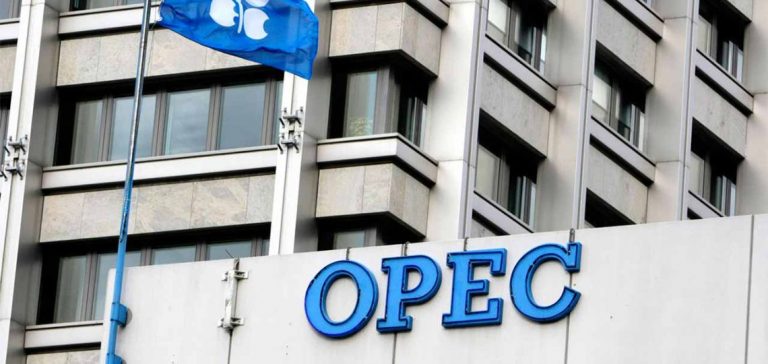The intensification of the conflict between Israel and Iran has raised concerns about the stability of the global oil market. As Israel considers targeting Iranian energy infrastructures, analysts are examining OPEC+’s ability to respond to such a supply shock. However, any broader regional escalation could threaten the entire Gulf’s oil infrastructure, exposing markets to extreme volatility.
OPEC+, a group comprising members of the Organization of the Petroleum Exporting Countries (OPEC) and their allies such as Russia and Kazakhstan, has adjusted its production levels in recent years to stabilize oil prices in the face of weakened global demand. To date, OPEC+ holds an excess capacity estimated at 5.86 million barrels per day (bpd), primarily concentrated in Saudi Arabia and the United Arab Emirates (UAE). This reserve is crucial to compensate for any supply shock, notably a total interruption of Iranian production of 3.2 million bpd.
Amrita Sen, co-founder of Energy Aspects, points out that, theoretically, this excess capacity could cover an Iranian production loss, but this assumes regional geopolitical stability. The problem lies in the fact that the bulk of this capacity is located in the Gulf region, a zone particularly vulnerable to Iranian reprisals in the event of an escalation of the conflict.
OPEC+: Reserve Capacity and Regional Threats
Current tensions risk triggering a spiral of violence that could affect other producers in the region. If Israel were to attack key oil infrastructures, such as refineries and the Kharg Island terminal (from which 90% of Iranian exports transit), Iran could choose to retaliate by targeting the energy facilities of its neighbors, including those of Saudi Arabia and the United Arab Emirates.
Helima Croft of RBC Capital Markets warns that Iran might seek to “internationalize the cost” of this conflict by disrupting the energy operations of other countries in the region. These actions echo the 2019 drone attack carried out by Iranian proxies against Saudi facilities in Abqaiq and Khurais, which briefly cut 50% of the kingdom’s production. Such an escalation would transform a bilateral crisis into a major regional conflict, leading to severe disruptions in the global oil market.
Potential Consequences for the Global Energy Market
Oil markets are already on alert, with a price range fluctuating between $70 and $90 per barrel despite the Russo-Ukrainian conflict and persistent tensions in the Middle East. However, a major interruption of production in the Gulf could push prices well beyond these levels. The key factor here is the concentration of the world’s energy infrastructure in a high geopolitical risk zone.
Although the United States, with its production accounting for 13% of the global supply, offers some diversification, this domestic capacity might not be sufficient to compensate for a supply crisis in the Gulf. According to Rhett Bennett, CEO of Black Mountain, the market currently benefits from a “diversity of supply” that mitigates the perceived risk, but widespread escalation would render this resilience ineffective.
Geopolitical and Economic Repercussions in the Short Term
If oil prices were to rise due to an expanded conflict, it could have significant political and economic consequences, particularly in the United States, where the surge in gasoline prices could negatively impact Vice President Kamala Harris’s popular support in her presidential campaign against Republican candidate Donald Trump. Any price increase could thus shift the electoral debate toward the management of current energy policy, increasing pressures to stabilize the market.
To avoid escalation, the United States might seek to moderate Israel’s response, attempting to maintain a fragile balance between regional security and market stability. However, a deterioration of the situation would inevitably mean additional disruptions and increased inflationary pressures.





















